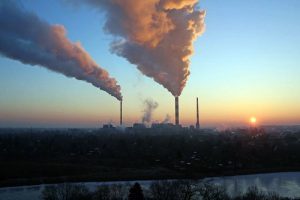The question is not trivial: methane or CO2, which poses a greater danger? Both gases contribute to the greenhouse effect, exacerbating climate change. However, their characteristics and effects on the environment are different, making it crucial to understand their differences.
The carbon dioxide (CO2) is generated as a byproduct of combustion, especially since the Industrial Revolution when humans began to burn large amounts of fossil fuels. Its impact is worsened by its persistence in the atmosphere for hundreds of years, prolonging its effect on global warming.
The main natural sinks of CO2 —forests, soils, and oceans— are continuously being degraded by human activities. Deforestation, pollution, and soil degradation reduce nature’s capacity to absorb this gas, contributing to its accumulation in the atmosphere.
The balance of ecosystems, crucial for CO2 regulation, is threatened by our actions. The burning of fossil fuels and the deterioration of natural sinks not only release more CO2 but also hinder its natural removal.
 reduction in methane emissions
reduction in methane emissions
Methane: a more intense impact but of shorter duration
Methane, on the other hand, is a natural gas released mainly during the decomposition of organic matter. Sources such as intensive livestock farming, landfills, stagnant waters, and natural gas production make it a significant contributor to the greenhouse effect.
Since 1990, methane levels in the atmosphere nearly doubled, with an accelerated increase since 2007. Unlike CO2, methane remains in the atmosphere for only about 12 years. However, during that time, it is between 21 and 89 times more efficient at trapping heat, depending on climatic conditions and its origin.
Although some natural methane emissions are inevitable, many of its sources related to human activity could be better managed. Intensive animal farming and inadequate waste management, for example, are key areas where improvements could be implemented.

Which is worse?
While methane has a more potent effect on atmospheric warming, its persistence is much shorter than that of CO2. This means that, if methane emissions are significantly reduced, relatively rapid climate benefits could be seen.
On the other hand, CO2, although less potent, poses a long-term problem due to its persistence. Reducing emissions of both gases is essential to mitigate climate change, but controlling methane could offer more immediate results in the fight against global warming. Both gases are pieces of a complex puzzle that require attention and urgent action to ensure a more sustainable future.
 methane
methane
Methane would be more harmful to health than CO2
Methane is more harmful to health and the environment than carbon dioxide (CO2):
- Greenhouse effect: Methane is the second most dangerous greenhouse gas. It traps more heat in the atmosphere than CO2, making it 80 times more harmful during the 20 years following its emission.
- Tropospheric ozone: Methane is a precursor to tropospheric ozone, an atmospheric pollutant that causes 1 million premature deaths each year.
- Air quality: Methane affects air quality and crop performance.
- Human health: Methane can cause a burning sensation and shortness of breath, complicate asthma conditions, cause lung dysfunctions, and alter the immune system response.
On the other hand, CO2 is not toxic to human health, but high concentrations indoors can displace oxygen in the air and cause discomfort and fatigue.
Have you visited our YouTube channel? Subscribe now!

